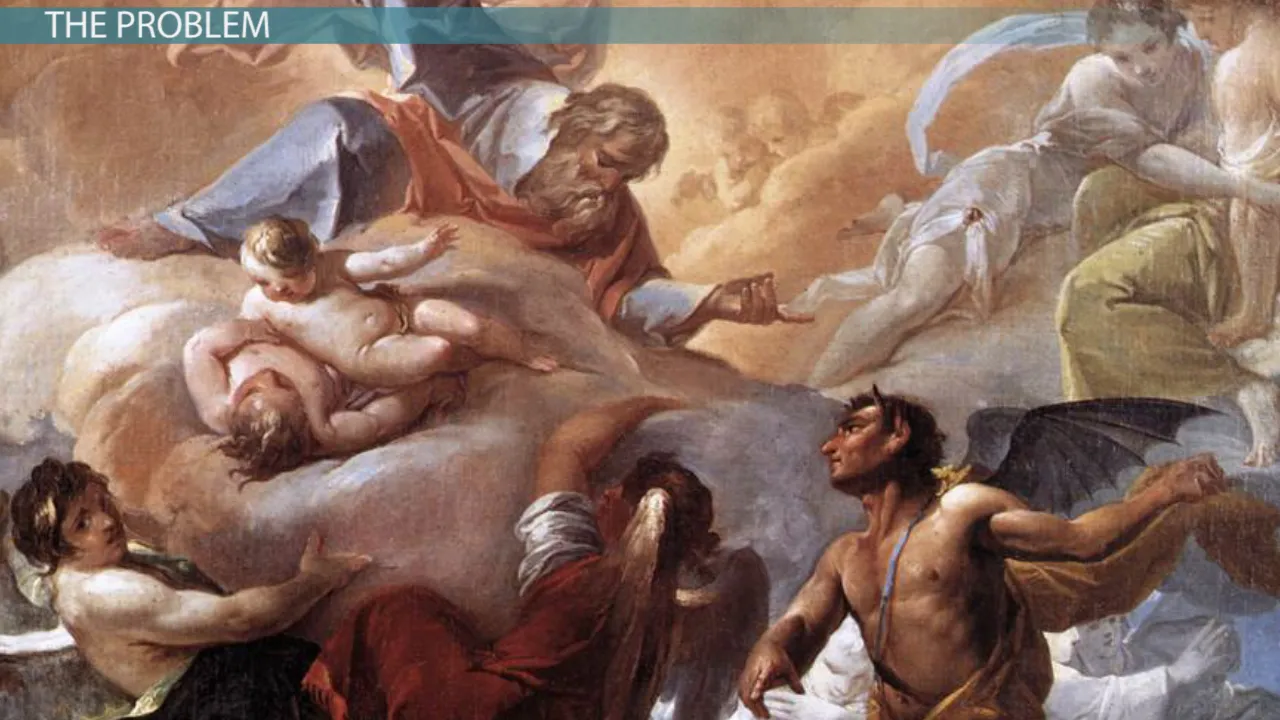Prologue
The aim or my motivation to share some thoughts on this controversial subject is not to convert to deconvert someone. I don't believe I can or should try to convince anyone of my positions. But, I do think its productive to share the chain of thoughts that attempt to make my worldview cohesive.
If anything, I hope this post inspires someone to write something better, something that makes more sense than anything I can think of at the moment. If you are that person, if you are here because you enjoy flexing the mental muscle, Welcome.
I begin with this caveat, because when one tends to dabble in these topics the guttural reactions tend to be in the forefront more often than not. If you are looking for a gladiatorial debate, to punish me for even questioning, then allow me to save you some time: Don't bother, I wont engage.
The problem of Evil

There is a branch, if you will, of apologetics that tries to tackle interesting philosophical conundrums. I may seem cynical for using the word "tries", but I can't ever seem to be fully satisfied by the answers, the plausible ones, that is.
One such subject, a controversial one at that, is the never ending debate on the problem of evil. If you are not aware of it, it can be summed up as follows:
- P1a. God exists.
- P1b. God is omnipotent, omnibenevolent and omniscient.
- P1c. An omnipotent being has the power to prevent that evil from coming into existence.
- P1d. An omnibenevolent being would want to prevent all evils.
- P1e. An omniscient being knows every way in which evils can come into existence, and knows every way in which those evils could be prevented.
- P1f. A being who knows every way in which an evil can come into existence, who is able to prevent that evil from coming into existence, and who wants to do so, would prevent the existence of that evil.
- P1. If there exists an omnipotent, omnibenevolent and omniscient God, then no evil exists.
- P2. Evil exists (logical contradiction).
I confess It can be tempting to leave it there, to accept it as is and embrace the idea that no deity, no benevolent deity, can exist. I also admit that I have wrestled with the problem of evil for a very long time myself.
It's simply not up to debate the fact that evil is real. As a matter of fact, it's around us, around me, as I'm typing this philosophical reflection, and I hope I can be forgiven for injecting some drama into this, but I really hope where I'm coming from is more than obvious.
How to refute something so solid?
At first glance the task seems daunting, and I'm sure I'm not alone here. It seems to us, or to me at least, that I probably wont ever fully grasp the objective truth here, since such goals are as unreachable as it gets.
I have, however, taken the time to inform myself of how respected thinkers, respected apologists for that matter, have tackled this particular issue, and even though I can't find myself wearing the team jersey, I do understand where they are coming from. A task, I might add, that was very difficult for many years.
William Lane Craig

In the field of apologetics, Professor Craig is probably one of the most recognized philosophers in the world. Sometimes I find myself respecting his views, even though he might fail to convince me. A feat that in my opinion speaks volumes of his ability to formulate his points.
He is very relevant to this conversation because he's managed a logical juxtaposition that makes things work, even though it does not make them feel right.
His solution to the problem is to add a simple amendment, if you will, to our idea of a benevolent God. In his view, there is not need to negate his benevolence, but rather reconsider the scope of analysis.
In Christianity, as it is with many other religions, it is believed that God exists outside of space and time, therefore what we might consider bad or evil, for that matter, might lead to a better tomorrow. A better path was chosen, and even though the suffering seemed unnecessary, there is no way for us humans to understand the limitless scope of time.
To put it into layman terms, or better yet, to give an example. The tragic death of a loved one as painful and horrid as it may be, was probably necessary for a greater good. The latter part not entering into our emotional scope until much, much later.
It's pretty difficult for me, at least, to remove the emotional layers being irritated by the possibility of accepting this amendment, so to speak. It makes logical sense, it follows, as one might say, but when I begin to expand on the evil things that happen, on the horrible suffering that still inflicts humanity, I'm pulled back into an emotional rejection of it all.
I hope I can be forgiven for the next few lines, and I confess they are an attack on your emotional composure, but my goal here is to let you, my reader, sit in the cockpit of my mental existence for a few seconds. So, here it is:
In order for me to accept this, is to accept that my concept of morality is irrelevant in the grand scheme of things. It should not bother me one bit that children die of starvation in developing countries, that there are war crimes too horrid to describe happening every day, because I have to accept that there is a greater good controlling everything. But you see, if I dare to make this step forward, mentally, of course. The next pieces of the puzzle are too disturbing for me to even contemplate.
I would have to accept my morality, my desire to leave a world better than the one I found is irrelevant too. Irrelevant I say, because my free will therefore must be an illusion. An illusion I say, because if the events that follow, influenced by my agency, inspired or molded by my morality, cannot disturb the grand plan, the timeline must continue. Do you see the precipice of nothingness that destroys meaning like I do?
I'm sure if professor Craig was in front of me, he would probably tell me to tone down my arrogance. That I should not think that I, a mortal being, should or could understand the mind of God, and that I may have been falling down the Dawkinian arrogance. (Dawkins is quite insufferable these days), but his words would do little to quiet down my questioning.
As far as I can tell, Questions are the only right answers sometimes.
MenO